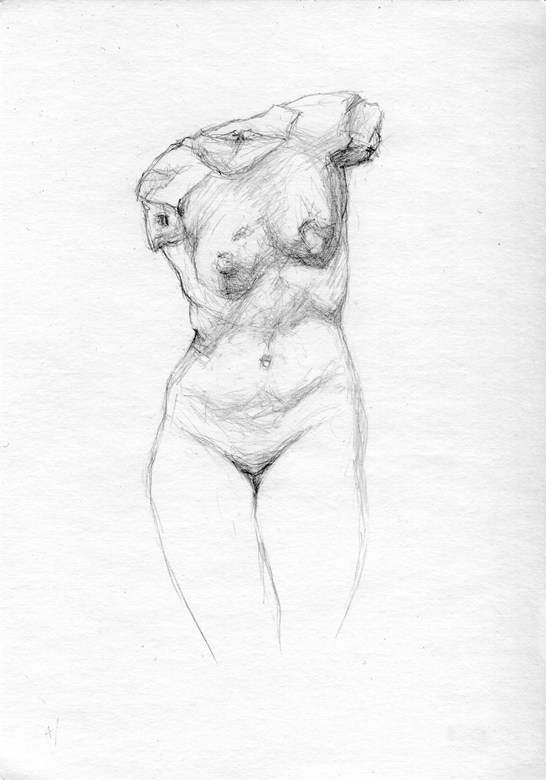XCVIII
The world does not have to conform to anyone’s idea about it
I ran right outside
And I hopped inside a cab
I went out the other door
This Englishman said, “Fab”
As he saw me leap a hot dog stand
And a chariot that stood
Parked across from a building
Advertising brotherhood
I ran right through the front door
Like a hobo sailor does
But it was just a funeral parlor
And the man asked me who I was
I repeated that my friends
Were all in jail, with a sigh
He gave me his card
He said, “Call me if they die…”
Writ Zimmerman oncet
Cornbread, hogmaw and chitlins
Cornbread, hogmaw and chitlins
¡Lechon! !Lechon!
Cantaron Sabatier y Cuba en otra época
!No olvide las canoles!
Cannolu, meaning “little tube,” derived from Arabic Qanawat
It’s a small tube after all
Orlanda curiosa
Can a person have intelligent hair?
A well-built black man, probably in his early 30s, his pants ripped vertically down both legs, kneels into a wall at Waverly and 6th. He sings into hands cupped as if holding a cell phone: “I feel the secret to your pain.”
I went to Ellis Island, but Ellis doesn’t live there any more
O revolutionaries, liberals, conservatives, reactionaries all: what is the nature of real change? Is there such a thing as unreal change? We divide degree and quality of phenomena. Can they be avulsed and the patient live?
You’ve got to go when the wagon comes…
Louis Jordan, genius genius genius
Now children, let Brother Jordan tell you
How to be reet with everyone you meet
Just get in the groove with that boogie-woogie move
Cause today, you gotta have a beat.
There are no brownie points, only brownies. And, sometimes, blondies.
Empathy for the Devil
Because there is no because clause
After the men in D-yard rejected the 28-point program for negotiating reform on which the observers, including Tom Wicker, and Russell Oswald, Attica’s superintendent had agreed, the strategy among the observer group shifted to an attempt to induce Governor Nelson Rockefeller to visit Attica and meet with the observers. Duly, they attempted to convince Rockefeller’s chief deputy and personal representative at the prison, one Robert Douglass (Dartmouth ’53, Cornell Law School, and formerly Rocky’s general counsel) to use his influence to bring the governor to Attica. At first, Douglass refused to meet with the observers, but then, after repeated and ever more urgent requests, he appeared in the Stewards’ Room, where the observers were gathered. “I’m Bobby Douglass,” he said, “a friend of many of you here.” Several observers made their cases for the governor’s presence, then Wicker, who had met Douglass on several previous occasions took his turn, asserting the need to “buy time,” for negotiations to proceed and suggesting that widespread rioting would ensue if the prison was retaken by force.
“Inmate rhetoric, moreover, had suggested that D-yard clearly understood that Governor Rockefeller was The Man with the power. Obviously, they wanted him to treat them with some respect, as if they too were men worth negotiating with. But it was the observers who were asking Rockefeller to come to Attica, Wicker insisted, and it was only the observers that the governor would be expected to deal. His presence, his mere intention to come, quickly would be well-known to the D-yard brothers. And that could even break the impasse because it would mean that The Man cared what happened to them.
“But if Rockefeller didn’t come, Minister [Franklin] Florence again broke in to say, the brothers would just be confirmed in ‘what they know in their guts, that he doesn’t care.’
“Wicker had a final point to make. [Jaybarr] Kenyatta [another of the observers] had just exacted from them, he told Douglass, a pledge not to let the public forget what had happened at Attica. ‘Well, I won’t forget,’ Wicker said. ‘I pledge you that, and I pledge it to the governor.’
“He watched Douglass’ eyes narrow a little and was not surprised. Douglass knew a political threat when he heard one; and Tom Wicker thought with wonderment of what had happened to him in little over 48 hours at Attica. Never before had he deliberately threatened anyone with the latent political power of his well-displayed articles in The New York Times. He was ashamed of himself, but exhilarated, too, and angry. Listening to the others talk to Bob Douglass, hearing his own voice, he had become as convinced as he ever had been of anything that Nelson Rockefeller belonged in the Stewards’ Room.
“In New York [State], Rockefeller was The Man. Whoever held title, Rockefeller headed the state government, the state machinery, one of its major political parties; in fact, he headed the state ‘corrections’ system. And that was just the political Rockefeller. The other Rockefeller – all the other Rockefellers of the world, the great owners and proprietors and investors and profit-makers – shaped, as nearly as any one human did or could, the society that had produced Attica and ‘the conditions’ into which… the men of D-yard had been put.” [Wicker, ATTD, pp. 202-203]
To find freedom in the world, you first have to take your freedom within yourself: through breath, through opening and closing the vessels, and realizing the pivot.
Ah, the fog and fiction of war
Kidney breathing: the real heel
You been traveling far to drink from the well of Phobos, when the well of Eros is right here, there, upside you all the while.
I looked at my watch
It was 10:66
She said my my my
Better get that fixed
And we rolled, reelin’ and rockin’
We were reelin’ and rockin’
Rollin’ till the break of dawn
But Minnie had a heart as big as a whale
Good morning, happy accident
I was a wildebeest for the FBI
It’s the spectacle, stupid
or, rather, it’s stupid, the spectacle
but then, that’s what it’s paid to be
I was a wrathful deity for the FBI
Shamanism or showmanism?
I was a Shah Man for the CIA
Even in the West, a multitude of deranged marriages
I’d rather be happy than significant
It was, it seems, not until the earlier part of the Middle Ages that “books” were divided into numbered “chapters,” the sequence of which did not, however, imply or reflect a system of logical subordination; and it was not until the thirteenth century that the great treatises were organized according to an overall plan: secundum ordinem disciplinae so that the reader is led, step by step, from one proposition to the other and is always kept informed as to the progress of this process. The whole is divided into partes which – like the second part of Thomas Aquinas’ Summa Theologica – could be divided into smaller partes; the partes into membra, quaestiones or distinctiones, and these into articuli. Within the articuli, the discussion proceeds according to a dialectic scheme involving further subdivisions, and almost every concept is split up into two or more meanings (intendi potest dupliciter, triplicter, etc.) according to its varying relation to the others.
On the other hand, a number of membra, quaestiones, or distinctiones are often tied together into a group. The first of the three partes that consititute Thomas Aquinas’ Summa Theologica, a veritable orgy both of logic and Trinitarian symbolism, is an excellent case in point.
All this does not mean, of course, that the Scholastics thought in a more orderly and logical fashion than Plato and Aristotle; but it does mean that they, in contrast to Plato and Aristotle, felt compelled to make the orderliness and logic of their thought palpably explicit – that the principal manifestatio which determined the direction and scope of their thinking also controlled its exposition and subjected this exposition to what may be thermed the POSTULATE OF CLARIFICATION FOR CLARIFICATION’S SAKE.
From parte III of Erwin Panofsky, Gothic Architecture and Scholasticism. Cleveland, OH: Meridian Books, 1951, pp. 33-35.
The pilgrim reaper
No progress without pilgrims and vice versa
I coulda been contenter. Not.
Don’t mourn, aggrandize
Speaks Latin
That satin
Doll




